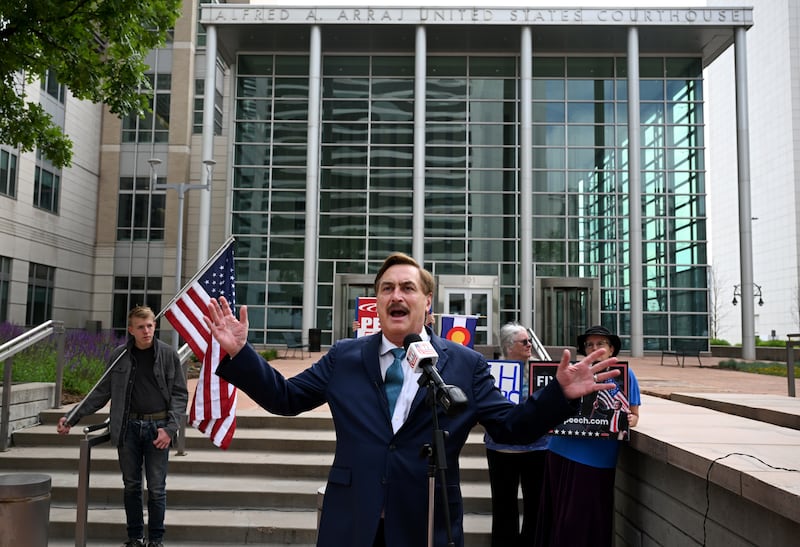Two attorneys for embattled MyPillow CEO Mike Lindell will have to pay hefty fines after submitting a court briefing entirely generated by artificial intelligence, a Colorado judge ruled Monday.
Christopher Kachouroff and Jennifer DeMaster were each fined $3,000 by U.S. District Court Judge Nina Y. Wang, a Joe Biden appointee, after they submitted a court filing riddled with errors, including citations to nonexistent cases. The attorneys later admitted the document was the product of generative AI.

Kachouroff and DeMaster were representing Lindell in a defamation case against him brought by former Dominion Voting Systems employee Eric Coomer when they submitted the faulty filing. Lindell lost the case last month and was ordered to pay $2.3 million to Coomer.
The MyPillow CEO was one of several conservative pundits whom Coomer sued for repeating the false claim that he had manipulated Dominion Voting Machines to rig the 2020 election in favor of Joe Biden by altering the ballots of Trump voters.
Wang, who presided over the defamation case, wrote in her Monday ruling that she became concerned after Kachouroff submitted a filing in March that contained obvious, “egregious” errors.
The judge became suspicious because the filing, a response to a pre-trial motion filed by Coomer’s attorneys, frequently misquoted the past cases it cited, referenced legal principles irrelevant to its argument, and contained at least 30 incorrect citations. Worst of all, Wang wrote, it contained several citations to cases that don’t exist.
When Wang confronted Kachouroff with the errors, he initially claimed the document was a draft that had been submitted by mistake. He then attempted to shift the blame to McMaster, claiming she had been placed in charge of checking citations.
However, Wang, already suspicious that the briefing might have been AI-generated, pressed the two lawyers, asking them directly if they had written the brief themselves.
At that point, Kachouroff claimed he had written the briefing himself, then “ran it through AI.” He eventually admitted that neither he nor McMaster had checked the AI-generated version to confirm it was factual.
Ultimately, Wang ruled that while their AI use alone may not have been enough to merit a fine, Kachouroff and McMaster had violated federal rules by signing the document without fact-checking the AI-generated material.
However, shortly after coming clean about his AI faux pas, Kauchoroff lashed out at the judge, writing to Wang that it was “unfair” of her to “rapidly examine [him] with detailed questions” about the briefing. The attorney also claimed he had been “blindsided” by her decision to investigate his rule violation.
In her Monday ruling, Wang responded that it was the attorneys’ responsibility to comply with federal rules on their own, “without any prompting from the Court.”
However, Lindell’s case was in troubled waters even before his lawyers submitted the AI filing. In Oct. 2023, the longtime Trump ally said the first two legal teams hired to represent him in the defamation case had quit because he had “no money left” to pay them.
Though Lindell has since said he plans to appeal the ruling in his defamation case, he’s also said he’s millions of dollars in debt.
The post Lawyers for MyPillow CEO Fined for Using AI to Write Court Filing appeared first on The Daily Beast.




